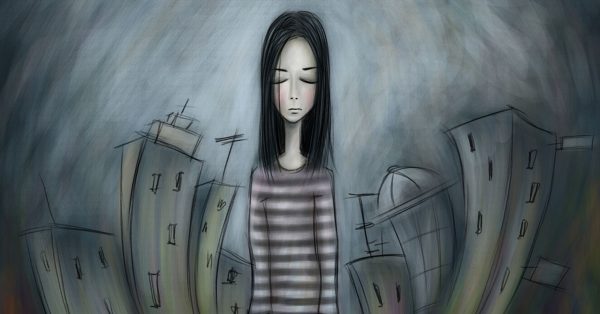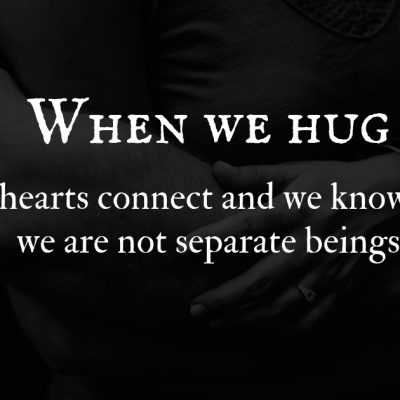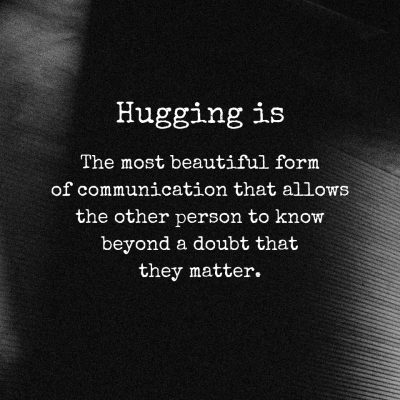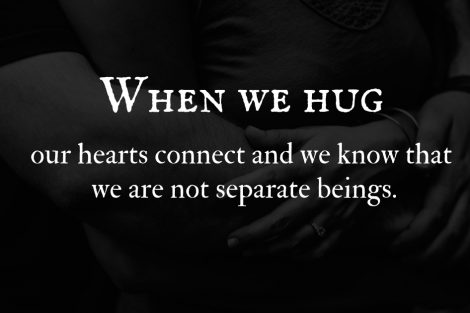Mental health has become such an urgent topic nowadays. Because depression affects so many of us, chances are you know at least one person struggling with this illness.
 What Is Depression All About?
What Is Depression All About?
Mental illness has a long history of stigma but we seem to be making some progress in this area. More and more people are reporting lately that they are dealing with depression or anxiety. When people were asked to describe it, one very common phrase they used was living in a black hole.
Depression can take many forms as we are very complex and diverse as individuals. It affects an estimated 350 million people worldwide but it still carries a stigma: people thinking it’s not a real disease but rather a fabrication of the mind.
A first important element of depression is that it’s not mere sadness. We all have our emotional ups and downs and this is natural. There are some common symptoms that people experience. You can learn more about the 8 hidden signs of depression here.
What Does Latest Research Tell Us About Depression
 But high-functioning depression goes a lot further than this. Science has made huge progress in this area. However, we still barely know what causes it and which treatment is the most effective. The major breakthrough was the most recent research which overturned everything we thought we knew about this disease.
But high-functioning depression goes a lot further than this. Science has made huge progress in this area. However, we still barely know what causes it and which treatment is the most effective. The major breakthrough was the most recent research which overturned everything we thought we knew about this disease.
Scientists have discovered that depression may be a physical illness caused by inflammation. They think inflammation throughout the entire body, triggered by an overactive immune system, might be the root cause of depression. This physical affliction could generate feelings of unhappiness, hopelessness, and fatigue. You can learn more about this study here.
Studies on this topic also indicate that women are twice as likely to suffer from major depression than men. Psychologists believe this happens because of a combination of factors like hormonal, genetic, reproductive, biological, and social. There are also many women who have experienced post-partum depression and talked about it. Here are 10 famous women who have overcome depression and open themselves up about the struggle.
Big Boys Do Cry: The Link Between Toxic Masculinity and Depression
 When comparing the numbers, it’s also true that women are more likely than men to report feelings of depression and also seek help. So maybe this factor alone can distort our idea that men don’t experience it as much.
When comparing the numbers, it’s also true that women are more likely than men to report feelings of depression and also seek help. So maybe this factor alone can distort our idea that men don’t experience it as much.
In the aftermath of tragic cases of suicide, there has been an increasing interest in how men are affected by this illness and the enormous stigma around it. Researchers have discovered there is a strong connection between toxic masculinity and depression.
How many times have we heard or even uttered the words: man up or you throw like a girl or stop crying like a little girl? Although this is a deep-seated approach in our culture, it’s very hurtful for both men and women. They all rely on an ideal of masculinity that no one will ever be able to live up to.
Trying to conform to society’s ideal of masculinity can become incredibly stressful and exhausting for men. This is probably the number one cause for anxiety, panic attacks and depression among guys.
New research on the correlation between obeying these masculinity rules and mental health tells us that this is very much the case in our modern society. There have been previous studies to suggest that such a connection exists. But this is the first study of its kind that puts men and mental health under the lens.
So if you’re in love with a guy who goes through this, let him know you are there for him. Show kindness and compassion and make sure you tell them it’s alright if they want to seek professional help.
Stress Vs. Anxiety And Depression
Sometimes, we may believe we are simply stressed. So where do we draw the line between mere stress and mental illness? The link between stress and depression and anxiety is very common. Sometimes, the terms “depression” and anxiety are even used interchangeably. However, they have some symptoms that are different.
 Most of us lead hectic lives these days so no wonder we’re almost constantly under stress. Our eating and sleeping habits may not be the healthiest and some projects just won’t let us go to bed. Although we work passionately and have goals we intend to achieve, this kind of lifestyle still gets tiring at some point.
Most of us lead hectic lives these days so no wonder we’re almost constantly under stress. Our eating and sleeping habits may not be the healthiest and some projects just won’t let us go to bed. Although we work passionately and have goals we intend to achieve, this kind of lifestyle still gets tiring at some point.
We’re all too familiar with the symptoms of stress: we feel constantly drained, we crave bad food, we’re more irritable, angrier or emotional in general. And all we want is a break from everything. But these are also symptoms of anxiety. Here are some signs that what you’re experiencing is in fact hidden anxiety.
Anxiety is yet another mental illness difficult to understand, but knowledge is power. Anxious people can come across as rude or uptight. But in reality, they only have a hard time communicating with people and are always wondering if they said or did something wrong. There are situations which only people suffering from anxiety will understand.
For example, they have nervous ticks. Because they feel embarrassed all the time, they play with the objects around them, with their hair or their clothes. This is how they try to calm themselves down.
Overcoming Overthinking
 One activity that is most associated with depression and anxiety is ruminating or overthinking. This is enough to push you over the edge and that’s because our thoughts have a huge impact on us and our well-being. You may not see it clearly now, but overthinking can mess up your life pretty badly. It has this talent to turn your whole life into something always questionable and never certain.
One activity that is most associated with depression and anxiety is ruminating or overthinking. This is enough to push you over the edge and that’s because our thoughts have a huge impact on us and our well-being. You may not see it clearly now, but overthinking can mess up your life pretty badly. It has this talent to turn your whole life into something always questionable and never certain.
Overthinking means on one hand ruminating, replaying past events in our head over and over again. On the other hand, there is excessive worrying about the future, where all the catastrophes of the world will certainly happen to us. Read more here about the 5 ways you can overcome overthinking.
There Is A Way Out
The most important thing you should know if you are struggling is that there is a way out. That other people have struggled with it and were able to overcome it. There are many out there who have decided to speak up about depression in the hope that they will help others. One such individual is Jim Carrey who shares with us a most impressive and inspiring story.
 He’s the actor who has brought smiles to our faces for nearly three decades but behind that big charming smile was actually a hurting heart. Jim Carrey suffered from depression when he was young and this is what he learned from overcoming it.
He’s the actor who has brought smiles to our faces for nearly three decades but behind that big charming smile was actually a hurting heart. Jim Carrey suffered from depression when he was young and this is what he learned from overcoming it.
There are many lessons of courage from people who battled with depression. If you or a loved one are going through this right now, remember that it takes great strength and courage to simply wake up every day.
We all have ups and downs and feel discouraged or hopeless every once in a while. But having depression is another story. It’s like being at the bottom of a well thinking you’ll never come out to see the light. And in those moments, days or months, you need courage above all else.
Why We Need To Move Forward With Courage And Gratitude
 Courage to take the lessons you learn and apply them to your future. It also takes a lot of strength and courage to move on, despite that something telling you it’s not worth it. Get inspired with these quotes on courage to help you get through the day.
Courage to take the lessons you learn and apply them to your future. It also takes a lot of strength and courage to move on, despite that something telling you it’s not worth it. Get inspired with these quotes on courage to help you get through the day.
As for the remedy for this gripping disease, love and compassion seem to be the answer. Show your loved one support and always remember to be grateful: grateful for one another and grateful for everything life has to offer. Numerous studies point to the fact that gratitude is the key to psychological well-being. Read more about the 3 benefits gratitude can have over your health.
Showing understanding and empathy to those suffering from this mental illness is crucial. Please share this powerful message!










